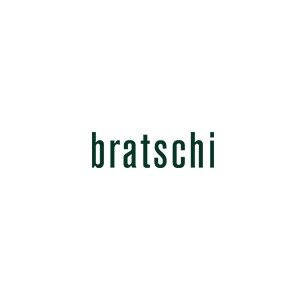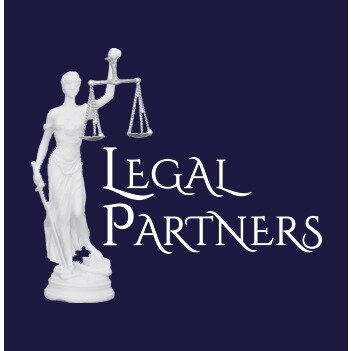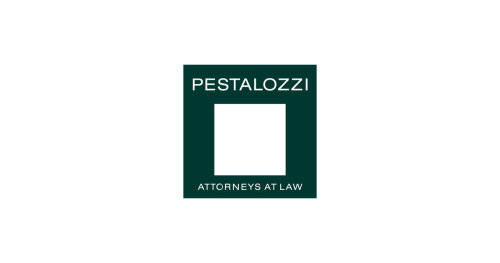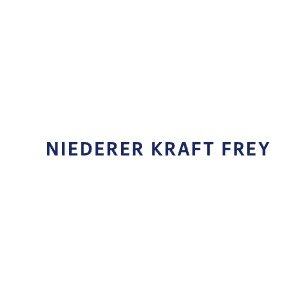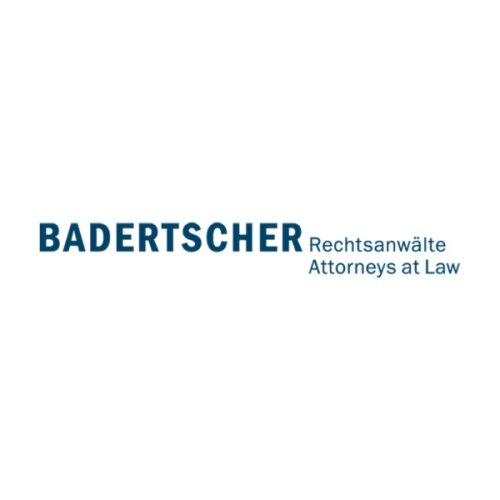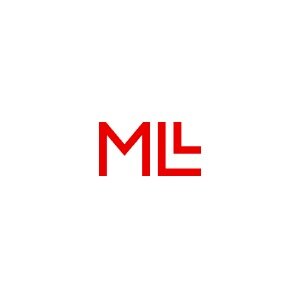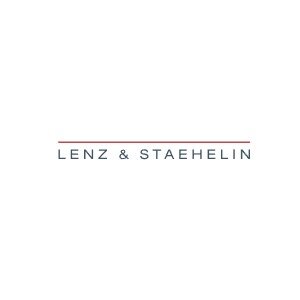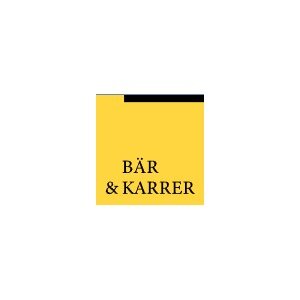Best Renewable & Alternative Energy Lawyers in Zurich
Share your needs with us, get contacted by law firms.
Free. Takes 2 min.
List of the best lawyers in Zurich, Switzerland
About Renewable & Alternative Energy Law in Zurich, Switzerland
Renewable and alternative energy are central to Switzerland’s efforts to create a sustainable and environmentally responsible future. In Zurich, these areas include technologies and projects based on solar, wind, hydropower, biomass, and geothermal energy. The legal framework is designed to encourage innovation, protect the environment, and promote energy independence while ensuring that new developments comply with national and cantonal regulations. Laws govern everything from project approval and subsidies to environmental protection and energy market operations. As Zurich is Switzerland’s economic hub, it is home to many initiatives and businesses in this fast-growing field.
Why You May Need a Lawyer
Engaging in renewable and alternative energy projects in Zurich can be legally complex. You may need a lawyer if you are:
- Planning to develop or invest in renewable energy installations, such as solar panels or wind turbines.
- Negotiating contracts or joint ventures for clean energy projects.
- Seeking government permits or subsidies for your energy project.
- Dealing with property issues, grid connection, or land use regulations.
- Facing environmental compliance or impact assessment requirements.
- Involved in disputes over energy supply, construction, or regulation.
- Purchasing or selling energy or green certificates.
- Wishing to understand your rights as a producer or consumer in the energy market.
Legal experts help you navigate regulations, draft and review contracts, manage risks, and resolve disputes, making them essential partners in the renewable and alternative energy space.
Local Laws Overview
In Switzerland, energy laws operate on both federal and cantonal (state) levels. Key aspects to consider in Zurich include:
- Swiss Energy Act (EnG) - This national law sets standards for energy efficiency, the use of renewables, and carbon emission limits.
- Swiss Electricity Supply Act (StromVG) - Regulates the electricity market, including access to the grid and pricing rules for renewable energy producers.
- Zurich Cantonal Energy Act (KEG) - Sets specific requirements for energy conservation, the use of renewable sources in buildings, and the promotion of local renewable energy.
- Building and environmental laws - Address planning permission, impact assessments, and the protection of cultural and natural resources when installing or operating energy systems.
- Subsidies and incentives - Both federal and Zurich cantonal authorities provide financial support and incentives for renewable energy investments, subject to detailed legal conditions.
- Grid access and feed-in tariffs - It is important to understand how small producers can connect to the grid and be compensated for the electricity they supply.
Laws are regularly updated to keep pace with technological and environmental changes, making professional legal guidance highly beneficial for anyone involved in the sector.
Frequently Asked Questions
What types of renewable energy projects are most common in Zurich?
The most common projects involve solar panels, hydropower plants, biomass installations, and increasing interest in geothermal and wind energy, especially in new buildings or infrastructure upgrades.
Do I need a permit for a private solar installation on my property?
Yes, most private solar installations in Zurich require a permit from local authorities, especially if the system will affect the building’s structure or external appearance. It is essential to check with the local planning office.
Are there subsidies for renewable energy projects?
Yes, both the Swiss federal government and Zurich canton offer subsidies and funding programs for various types of renewable energy projects, subject to eligibility and application requirements.
Can private individuals sell electricity generated from renewable sources?
Yes, private individuals and companies can feed surplus electricity into the public grid and are compensated according to regulated feed-in tariffs.
What environmental regulations apply to new renewable energy projects?
Projects often need to comply with environmental impact assessments, building codes, and protections for natural habitats or historic sites. Requirements vary depending on the project’s location and size.
How are renewable energy contracts regulated?
Contracts for the supply, purchase, or construction of renewable energy projects are subject to Swiss contract law, with special attention to energy-specific terms, grid access, and regulatory compliance.
Are there special rules for energy-efficient building upgrades?
Zurich’s energy laws require new buildings and major renovations to meet certain energy efficiency standards, often including the use of renewable energy where technically and economically feasible.
What is the approval process for a commercial renewable energy project?
The process typically involves obtaining planning permission, conducting environmental assessments, securing grid connection agreements, and applying for subsidies or funding. Legal advice is important to navigate this process smoothly.
How are disputes over renewable energy resolved?
Disputes may arise over construction, contracts, grid access, or subsidies. Many issues are resolved through negotiation, but litigation in Swiss courts or alternative dispute resolution methods like arbitration may be necessary.
Can foreigners or foreign companies invest in Zurich’s renewable energy sector?
Yes, Zurich welcomes foreign investment in renewable energy, though investors must comply with local laws, licensing, and reporting requirements. Legal advice helps to ensure compliance and protect investments.
Additional Resources
For further information or assistance regarding renewable and alternative energy law in Zurich, consider reaching out to:
- Swiss Federal Office of Energy (SFOE) - Responsible for federal energy policy, regulations, and support programs.
- Zurich Cantonal Office for Energy (Amt für Energie) - Offers guidance on cantonal energy laws, subsidies, and building requirements.
- EnergieSchweiz - National campaign providing resources for energy efficiency and renewable energy projects.
- Swissolar - Industry association for solar energy, with useful contacts and publications.
- Swiss Association for Environmental Law - Offers insights into environmental legal developments relevant to renewables.
- Professional legal associations - Help connect you with certified lawyers specializing in energy and environmental law.
Next Steps
If you require legal help in renewable and alternative energy in Zurich, consider the following steps:
- Gather as much information as possible about your project or legal issue, including documents, plans, and correspondence.
- Identify your goals, challenges, and any deadlines you must meet.
- Contact a lawyer or legal firm with experience in Swiss and Zurich energy laws. Ask about their expertise in renewable projects similar to yours.
- Take advantage of initial consultations to discuss your needs, understand potential costs, and establish a clear plan of action.
- Stay informed by reviewing resources from governmental or industry organizations listed above.
- Ensure ongoing communication with your legal advisor as your project progresses or if regulations change.
Professional legal guidance is crucial to ensure your renewable or alternative energy venture in Zurich complies with regulations, secures the necessary permits, and is set up for long-term success.
Lawzana helps you find the best lawyers and law firms in Zurich through a curated and pre-screened list of qualified legal professionals. Our platform offers rankings and detailed profiles of attorneys and law firms, allowing you to compare based on practice areas, including Renewable & Alternative Energy, experience, and client feedback.
Each profile includes a description of the firm's areas of practice, client reviews, team members and partners, year of establishment, spoken languages, office locations, contact information, social media presence, and any published articles or resources. Most firms on our platform speak English and are experienced in both local and international legal matters.
Get a quote from top-rated law firms in Zurich, Switzerland — quickly, securely, and without unnecessary hassle.
Disclaimer:
The information provided on this page is for general informational purposes only and does not constitute legal advice. While we strive to ensure the accuracy and relevance of the content, legal information may change over time, and interpretations of the law can vary. You should always consult with a qualified legal professional for advice specific to your situation.
We disclaim all liability for actions taken or not taken based on the content of this page. If you believe any information is incorrect or outdated, please contact us, and we will review and update it where appropriate.




